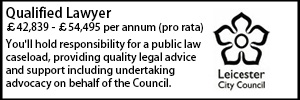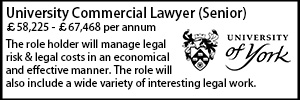Court of Protection judge considers how supervisory bodies should evidence their scrutiny of requests for authorisation of deprivation of liberty
- Details
An error in someone’s name on a form did not invalidate a standard authorisation, the Court of Protection has decided.
In YC, Re [2021] EWCOP 34 Her Honour Judge Hilder said though that Westminster City Council’s errors “should not have happened”.
The case concerned 89-year-old YC, who has dementia and various physical health issues and lives in a care home.
In June 2020, after various behavioural issues arose at the care home, the council purportedly granted a standard authorisation in respect of YC's living arrangements.
Representatives for YC contended that the standard authorisation was invalid because of errors in one section of Form 5, which is the written authorisation.
While the rest of the relevant forms were correct, in parts of Form 5 there were references to ‘Ms Hull’ rather than to YC’s real name.
Andy Seymour, the officer who signed the form, said that while the error was unfortunate none of the material was itself inaccurate in that all referred specifically to YC and her situation even if the name used was as some points wrong.
Westminster considered the standard authorisation was validly granted and that the errors were insignificant.
HHJ Hilder said: “I am satisfied that the first instance judge was entitled to conclude that the errors identified in the Form 5 Standard Authorisation relating to YC were merely ‘typographical’.” She added: It follows that the appeal cannot succeed.”
Despite that, the judge said: “YC's representatives were right to identify the circumstances of this case as a significant issue.
“In so far as this appeal offers an opportunity to improve practice, that opportunity should not be lost. I therefore invited the parties to make further written submissions, after the hearing, about how errors of form in a standard authorisation should be considered going forwards.”
She said nothing in her judgment should be taken to undermine “the seriousness of the requirements for proper scrutiny by supervisory bodies when considering granting standard authorisations.
“The errors in this case should not have happened. Rather, it is to be hoped that out of poor practice, the constructive engagement of both parties in this matter can point the way to better practice in the future.”
Mark Smulian
















































